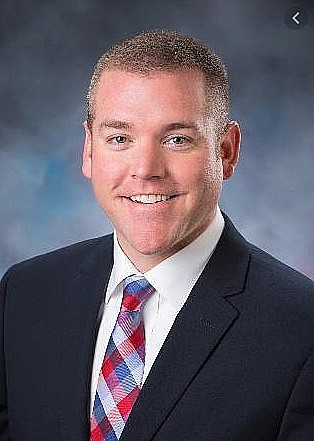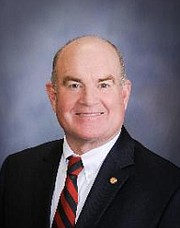Loose green leaves
Marijuana legislation is on both sides of the Idaho Statehouse this week, one asking for medical permission, the other's a constitutional ban.
Passing on a party-line 6-2 vote in the Senate State Affairs Committee Jan. 29, Senate Joint Resolution 101 would ban all psychoactive drugs not already permitted in the state. While the legislation would include heroin, cocaine, and methamphetamine, the main concern during public hearings was marijuana.
Neighboring states of Washington, Oregon, Montana, and Nevada all have legalized recreational and medical marijuana. Others like Utah allow for medicinal prescriptions, and Wyoming permits low-level THC, predominantly CBD based products. CBD (Cannabidiol) is an active ingredient in cannabis (marijuana) but is also derived from hemp plants and commonly used for medicinal purposes.
Presently, Idahoans can purchase CBD products in the state, but they cannot contain THC trace.
"People do need to understand that we're not trying to make anything illegal with the amendment that isn't already illegal," Sen. Mary Souza, R-Coeur d'Alene, said. "I'm a supporter of the amendment for keeping our drug laws as they are. We're not changing anything. We're keeping the status quo."
The joint resolution just had its first reading on the Senate floor, where it would need a two-thirds majority vote before heading into House committees. Rep. Paul Amador, R-Coeur d'Alene, said that he doesn't support SJR 101 and doubts it will make it past the house.
"SJR 101 does not just ban the legalization of marijuana in Idaho," Amador said. "It inserts a federal agency, the Food and Drug Administration, directly into the Idaho constitution and prevents any future changes to our drug laws, including possible changes to medical treatments."
If approved by both, the resolution would become a constitutional amendment that Idahoans would vote on in the November 2022 general election.
Support for CBD prominent and medicinal marijuana has grown with Idahoans in recent years, leading to activists pushing for a legislative initiative on the state ballot in 2022 and RS 28413, presented to the House Health & Welfare Committee Monday morning.
As a person with medical background and experience in the health care industry, Souza said she does believe in the medicinal uses of marijuana. She recalled when she was a young nurse, caring for a 12-year-old boy who suffered from cancer and struggled to keep food and nourishment down due to chemotherapy treatments. The child participated in a clinical trial that prescribed him medical marijuana, which aided him in stomaching liquid and soft food, Souza said.
"I've seen firsthand how it can help, but only if it is dosed correctly and known to be a pure form," she said. "When you go to your doctor, does he pull out a prescription plan and tell you to smoke x number of marijuana every six hours? No, because every plant is different, you don't know the chemicals used to process it or its potency. It doesn’t make any sense to say here is some loose green leaves go ahead and use a cup and a half of them in your brownies. That's not the way to use the medicine."
RS 28413 is named after Sgt. Jeremy Kitzhaber, a U.S. Air Force veteran, and would legalize medical marijuana in Idaho. Kitzhaber, who drafted the legislation, was inspired to bring it forward to lawmakers after being diagnosed with terminal appendix cancer and learning about cannabis benefits.
In support of the bill were presentations by Kitzhaber and by Dr. Dan Zuckerman, a medical director of an oncologist for the St. Luke's Cancer Institute — the region's largest provider of cancer care and research located in the southern part of Idaho.
Under this bill, patients with severe levels of cancer, ALS, AIDS, wasting syndrome, Crohn's disease, epilepsy, multiple sclerosis, debilitating seizures, and other terminal illnesses that are over the age of 21 could be eligible for up to 10 grams of medicinal cannabis per month.
"I think if there is medical value to marijuana, it should be in a doctor's arsenal," Rep. Jim Addis, R-Coeur d'Alene, said. "Just like there is for blood pressure medication or any other type of medication, we need to have efficacy in the drug. We need to know it is processed properly."
Amador said that he supports the idea of cannabis-derived prescription medicines like Epidiolex that are regulated and available through traditional retail pharmacies to ensure safety, efficacy and potency. However, he was hesitant about what the bill would mean for future actions.
"If this legislation were to become law in Idaho, I believe that it would eventually lead to the legalization of recreational marijuana as evidenced by the experiences of other states," Amador said.
If passed, the State Board of Pharmacy would supervise medical cannabis pharmacies registration, and the Idaho Department of Health & Welfare would disseminate medical cannabis cards for applicable persons.
Presented by House Minority Leader Rep. Ilana Rubel, D-Boise, and Rep. Mike Kingsley, R-Lewiston, the bill is bipartisan. An upcoming public hearing was approved and should be scheduled by the committee in the coming days.





